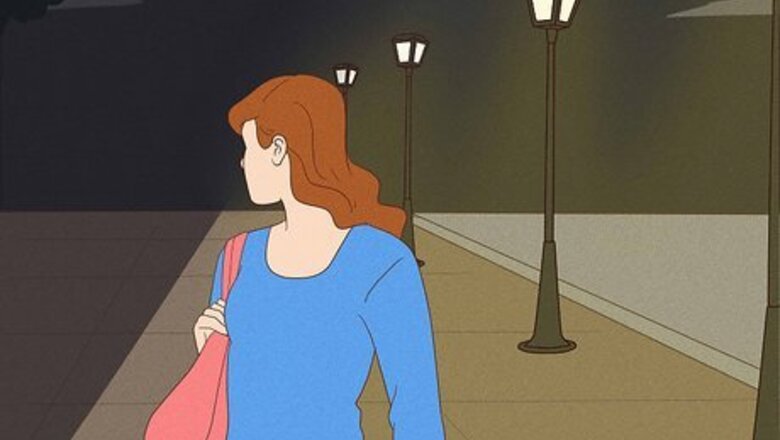
views
- Humans are hardwired to believe others are staring at us. If our brains can't tell if we're safe, they'll make us feel fear rather than incorrectly assume safety.
- In rarer cases, the feeling of being watched may stem from paranoia or a personality disorder.
- Consult a psychologist if you often feel watched or if this fear is impacting your daily life.
Reasons You Feel Like You're Being Watched
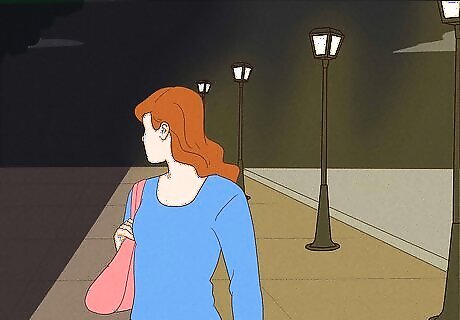
Your brain may be overcompensating for limited visual cues. Direct gaze can signal dominance, intimidation, or threat. It’s your brain’s job to pick up and inform you of nearby threats. But if your brain has limited visual cues—such as it would in the dark or if people around you are wearing sunglasses—it assumes people are watching you for safety’s sake. Basically, humans are evolutionarily hardwired to feel like people are staring at us when they’re not. Feeling like someone is watching you is a common phenomenon. It doesn’t mean anything is wrong with you—it’s just part of your brain’s psychology! If you frequently feel watched or observed, however, it may be worth looking into counseling or other options to cope with these sensations.
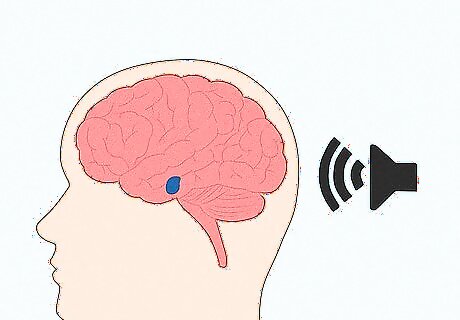
Your brain may have picked up on a faint noise. Sometimes, we hear noises that are so soft that we can’t consciously register them. However, the fear circuits in our brain, specifically in the amygdala, can and do pick up on extremely quiet noises. Your brain responds by crafting a story (e.g., someone is watching you) to explain the noise without any visual context. This phenomenon is a survival instinct based on evolution, like believing that people are staring at us when they’re not. Your brain doesn’t mean to scare you but doesn’t want you to miss a threat. It would rather you be on guard and defensive than caught unaware.

You’re feeling a tingling sensation on your skin. Many people report feeling this tingling when someone is staring at them. However, several studies have shown that there is no evidence that we can physically feel when others are looking at us. Although it can feel very real, the sensation you’re feeling is purely psychological—just a trick of your imagination. The tingling comes from the belief that you’re being watched, not because someone is spying on you. The sensation and belief of being watched are subject to confirmation bias. Confirmation bias means that if, out of every ten times you felt watched or felt a tingling sensation, there was one time when you turned and did see someone watching you, you are more likely to remember that one time rather than the other nine.
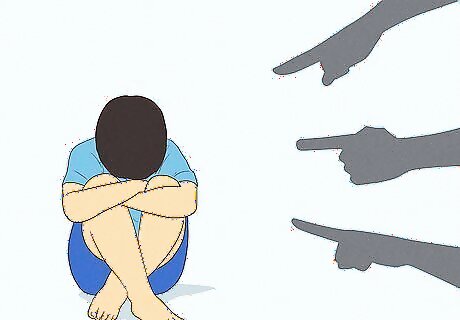
You may be predisposed to feeling watched due to your life experiences. Certain groups of people are more likely to feel observed and scrutinized due to certain conditions or demographics, like social anxiety, childhood trauma, or gender. If you have social anxiety, you may feel self-conscious or panicked when lots of other people are around, even if you know you’re safe. If you were raised by or around adults who intensely watched and berated your actions to the point of trauma, you may have a hard time shaking that invasive feeling as an adult. Women tend to feel more watched than men due to the frequency of street harassment directed toward them and the prevalent social messaging that their worth is based on their appearance. Studies of open-plan office spaces have even found that female workers reported feeling observed in their workplace more often than men, which inhibited their ability to feel safe and productive at work.
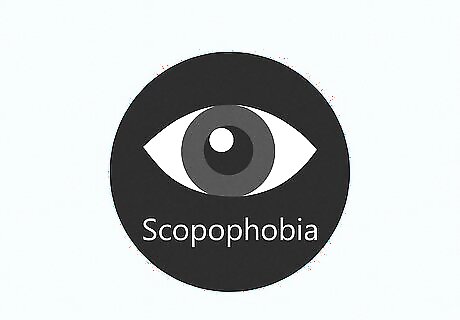
You may have scopophobia. In psychology, scopophobia is the fear of being stared at, to a more extreme level than the average person’s uneasiness. If you have scopophobia, the feeling of being watched is more so tied to being judged by others than it is to feeling physically threatened. You may strongly dislike making eye contact with others, being the center of attention, or speaking to a large group of people. Scopophobia is treated like an anxiety disorder, with recommended treatments being cognitive behavioral therapy, exposure therapy, and learned relaxation strategies.
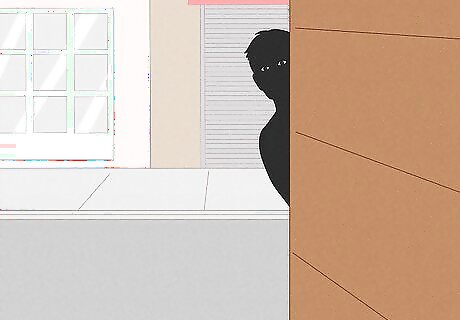
You may be experiencing paranoia. Paranoia is a persistent fear that someone is threatening you in some way, such as watching or stalking you, without any evidence or reason to believe that it’s true. Paranoia symptoms include always acting defensively or always being suspicious of others. Paranoia can be caused by altered brain chemistry, traumatic life events, a stress reaction, or a combination of these factors. The most severe type of paranoia is paranoid schizophrenia, which may include delusions that someone is watching or spying on you. Clinical paranoia should not be self-diagnosed—see a psychiatrist or medical professional if you think you are struggling with paranoia. These professionals understand the underlying causes and symptoms of paranoia and are equipped to help you. Treatments for paranoia include medication, talk therapy, and developing coping skills with a psychiatrist.
Stop Feeling Like You’re Being Watched
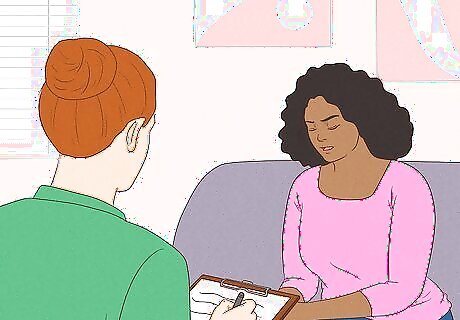
Seek guidance from a mental health or medical professional. Especially if you believe this sensation may be related to paranoia, social anxiety, or a phobia, it’s important to talk to a therapist who is experienced with these conditions and their treatments. No matter the reason behind your feelings, a reputable counselor can help. Remember that therapists and psychology experts are there to help and advocate for you. They will never do anything to make you feel uncomfortable, scared, or betray your trust.
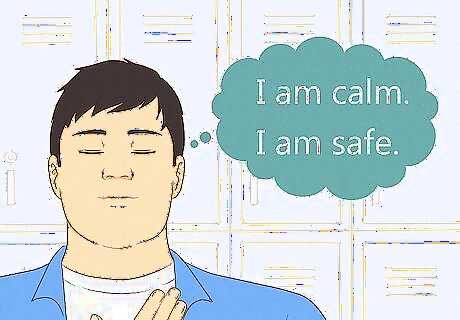
Choose a mantra for when you feel like someone is watching you. When you feel like someone is watching you but you have no evidence that someone actually is, repeat your mantra in your head or chant it out loud. You could even use your mantra as a daily meditation practice to calm your anxiety. No one is watching me. No one besides my friends, pets, or random passersby is watching me. Those eyes out there have so many more interesting things to see, and their brains have other things to worry about. I am calm. I am safe. This is a temporary feeling that I have felt before—it passed then and it will pass now. My brain is trying to lovingly protect me, but I know that I am safe. Thank you, brain. I appreciate your protection, but it is okay to let go of this fear now.
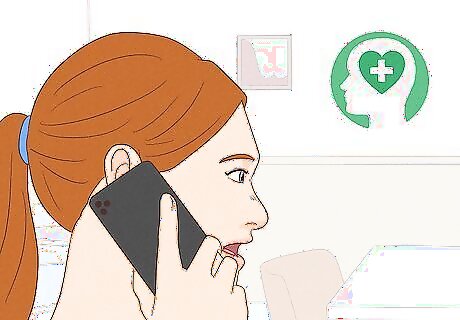
Call a mental health helpline or a trusted friend. Call the U.S. national mental health helpline, which is completely free and confidential. They are available 24/7, 365 days a year for no-commitment guidance and counseling. Ask 1-2 close friends or family members if you can call them when you’re feeling observed or otherwise unsafe. These individuals will understand what you’re going through when you call them and can ground you in reality. If you can ask multiple loved ones to support you in this way, you’ll have backups in case the first person you call is busy or unavailable at that moment.














Comments
0 comment